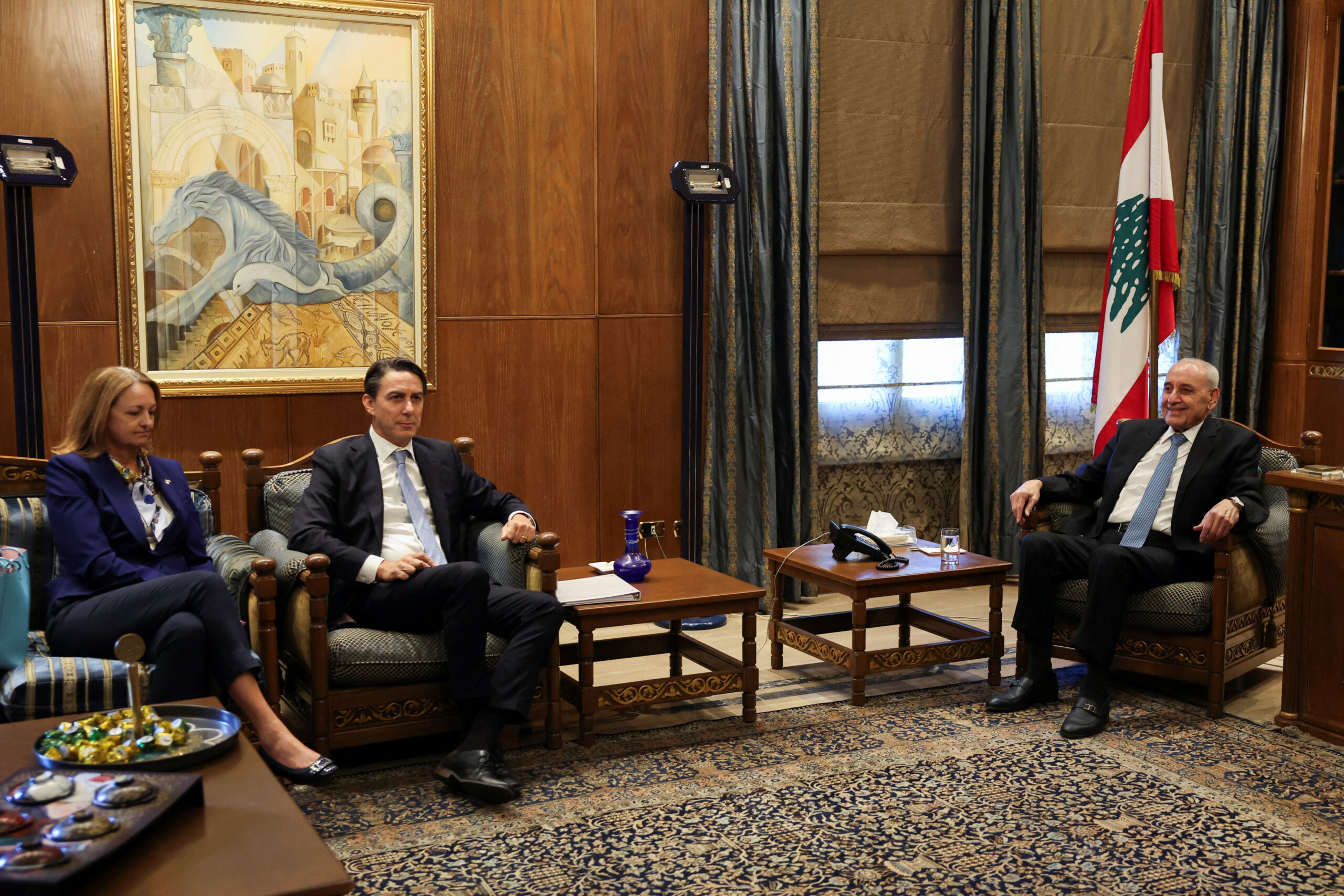
In Lebanon, a US representative will hold talks to end the fighting, while Israel goes after Hezbollah’s money
Monday in Beirut, U.S. envoy Amos Hochstein met with Lebanese officials to talk about the terms of a ceasefire between Israel and Hezbollah. The talks came after Israel attacked branches of a banking institution in Lebanon that was linked to the group.
Hezbollah in Lebanon and Hamas in the Palestinian Gaza Strip are Israel’s two most dangerous and heavily armed regional military enemies. Diplomacy has not been able to stop the fighting, which is now in its second year.
After Israel killed Yahya Sinwar last week, Washington hopes for a new push for peace in the Middle East. Sinwar was the boss of Hamas and planned the attacks on Israeli towns last year that led to Israel’s attack on the Gaza Strip.
The United States is trying to help bring about a peace in Lebanon, where Israel has been fighting on the ground for the past month. Most of the top leaders of Hezbollah have been killed. Hezbollah is a force backed by Iran that says it is fighting Israel for the Palestinians.
A statement from Najib Mikati’s office on Monday said that he said there was no other option than to follow U.N. Resolution 1701. He also said that “new understandings” could be made to make it happen.
Security Council Resolution 1701, which was passed in 2006, says that the U.N. must help the Lebanese army keep the area along their southern border with Israel free of any guns or armed people who are not from the Lebanese government.
The Israeli military said on Monday that it had hit short-range missile sites in southern Lebanon that were aimed at settlements in the north of Israel. The report said that fifteen missiles were hit.
Israel struck places in Beirut, southern Lebanon, and the Bekaa Valley all at once. They were aiming at bank branches that Israel says are run by Hezbollah to pay for their activities. Before the strikes, hundreds of families left their homes near the areas that were going to be hit, but no deaths were recorded at the time.
A worker in a bakery in Beirut called it “strike, strike, strike with planes and drones. We don’t know who they are going after and who will die every day.”
Before the attacks overnight, the Israeli military said they were going after the Al-Qard Al-Hassan Association. This is an alternative to the Lebanese banking system that the US says Hezbollah uses to handle its money.
The group has more than 30 branches all over Lebanon, with 15 of them in areas of downtown Beirut and its suburbs with a lot of people.
The group, Hezbollah, or the Lebanese government did not say anything right away.
As planned, Hochstein, the U.S. ambassador, will meet Mikati and Nabih Berri, the speaker of parliament, on Monday. Over the weekend, Berri told the TV station Al-Arabiya that Hochstein’s visit was “the last chance before the U.S. elections” to make peace.
To help bring about a peace in Lebanon, Berri has been working hard.
People in Beirut, who were already going through a terrible economic crisis, said they didn’t think the U.S. official’s visit would lead to a breakthrough.
“I think it will drag on and take longer.” Where are we going? It’s still a show. No one knows. People who say they know are lying, especially the so-called leaders you see on TV. “They don’t know what they’re talking about,” said 61-year-old boss Tony Rawandos.
Israeli troops have not slowed down their offensives, and they are also getting ready to respond to Iran’s barrage of missiles earlier this month, even though Washington has told them not to attack Iranian nuclear or energy centers.
Esmaeil Baghaei, a spokesman for Iran’s foreign ministry, said on Monday that Iran has told the U.N. nuclear watchdog about Israel’s threats against its nuclear sites.
The U.S. military moved an advanced anti-missile system to Israel, and U.S. Defense Secretary Lloyd Austin said it is now “in place” while he was in Kyiv.
It was not clear from Austin if the Terminal High Altitude Area Defense system (THAAD) was working. He said: “We have the ability to put it into operation very quickly and we’re on pace with our expectations.”
CONDITIONS FOR ISRAELIS
Because of Israel’s war in Lebanon, 1.2 million people have had to leave their homes. It says its goal is to get rid of Hezbollah fighters along the border so that tens of thousands of Israelis can go back to their homes that they had to leave because of cross-border fire from Hezbollah last year. They want to show support for the Palestinians by doing this.
Sources told Axios on Sunday that two U.S. officials and two Israeli officials said that Israel gave the US a document with its terms for a diplomatic solution to end the war in Lebanon.
Axios reported that an Israeli source said Israel wants its air force to be able to fly freely in Lebanese airspace and wants its forces to be able to do “active enforcement” to make sure Hezbollah doesn’t re-arm near the border.
A U.S. official told Axios that it was very doubtful that the rest of the world and Lebanon would agree to Israel’s terms.
Lebanese authorities say that more than 2,400 people have died in the past year. The Israeli government says that in the same time period, 59 people have been killed in northern Israel and the seized Golan Heights.
All Categories
Recent Posts
Tags
+13162306000
zoneyetu@yahoo.com


